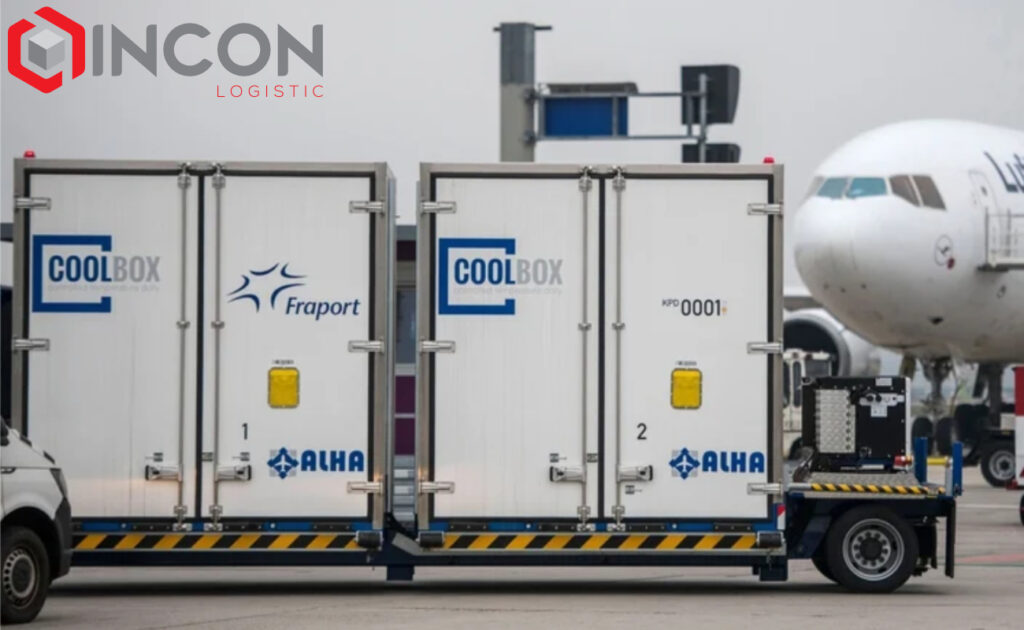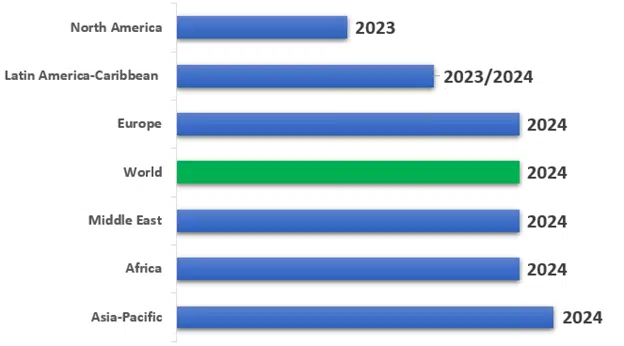Global Pandemics, Geopolitical Conflicts - Life After COVID
Since 2019, the world has turned upside down. The outbreak of COVID-19 was followed by the onset of the Russia-Ukraine war when things seemed to be calming down. No one could have imagined how these events would reshape our daily lives and, in turn, the logistics sector.
The COVID-19 pandemic had a significant impact on the logistics industry, affecting the transportation, storage, and flow of goods. The unprecedented challenges began with the shutdown of Chinese factories, which halted production. You can read about this in detail in an article from The Wall Street Journal.
The closure of numerous factories disrupted global supply chains, causing massive backlogs and shortages. This situation prompted most companies to stockpile goods and even charter private container ships. Consequently, the prices of products skyrocketed in a short period. As a result, companies had to consider implementing extensive changes, such as bringing manufacturing closer, which introduced new risks and costs. The concept of inshoring (bringing sourcing geographically closer) increasingly occupied the minds of executives responsible for inventory and raw material supply.
After the lifting of health measures and the easing of most travel restrictions, various European countries and the American continent saw a revival in industry and trade. However, this also highlighted the disparities in the recovery process, as significant air transportation markets in the Asia-Pacific region initially lagged behind their Western counterparts, due to Asian ports remaining closed to international traffic for longer periods.

Although everything has returned to normal today, market participants continue to face increasing challenges:
Increased Health Measures: During the pandemic, air transport providers, airports, and customs authorities implemented stricter health and safety protocols.
Limited Air Traffic: Many countries closed their borders or restricted the number of international flights during COVID-19. While many airports around the world were closed to passenger flights, most remained open for cargo traffic.
Decreased Demand: The global economy slowed down, leading to a decrease in demand for air transportation. Many companies sought alternative solutions that were more cost-effective.
Disruptions in Supply Chains: Factories, warehouses, and logistics centers were halted or shut down, crippling both production and transportation, resulting in bottlenecks, delays, and shortages.
Increased E-commerce Demand: Thanks to the pandemic, there was a surge in demand for e-commerce, as people sought to avoid physical stores. This fundamentally changed shopping habits, requiring market players to respond quickly.
Innovation and Digitalization: Many companies were compelled to rapidly adapt digital solutions and automation. An increasing number are incorporating AI (Artificial Intelligence) to facilitate the planning process.
Enhanced Focus on Safety: This situation highlighted the need for greater global attention to health and safety risks.
Changing Travel Habits: Travel patterns have changed. With fewer passenger flights, there is a need to switch to alternative transportation modes.
Skilled Labor Shortage: The impacts of the pandemic distorted the labor market. Many pilots became unemployed overnight and sought other jobs, leaving a shortage of skilled labor after the pandemic.
Transportation companies, factories, and warehouses paid a heavy price due to COVID-19, but at the same time gained valuable experience in what precautions need to be taken for future similar pandemics. We hope to be better prepared to face such challenges in the future.
How Has Air Freight Capacity Changed Since the Pandemic?
Are you curious about how this has evolved? Initially, in March 2020, air freight capacity dramatically decreased. Due to canceled flights, the cargo capacity of passenger aircraft diminished while the demand for personal protective equipment surged. As a result, availability decreased, but air freight rates increased and became more volatile. The global volume of air shipments fell by 10.6%, marking the largest decline registered since 1990. The industry’s flexible adaptation was crucial for recovery.
Starting from mid-2021, there was a noticeable improvement, and by the end of 2021 and throughout 2022, air transportation gradually began to recover. Airlines started to incrementally restore their capacities, but full recovery took longer, particularly for international flights. This was not a seamless process, as the effects of COVID-19 are still felt today.
There were instances where simple air transport routes were not feasible, necessitating the use of hybrid methods. How does this work? For example, goods are first loaded onto a ship, then transferred to an airplane, and finally delivered to the company by truck. Additionally, efforts were made to establish new air routes in order to reduce costs.
What Are the New Norms After the Pandemic?
The challenges faced by the industry due to COVID-19 have transformed the perspectives of the logistics and supply chain sectors. In the future, technologies that are essential for better logistics solutions and sustainability will come to the forefront. By 2024, the number of companies using or learning about AI (Artificial Intelligence) has rapidly increased.
In a 2022 article, Airports Council International detailed the current situation, noting that throughout 2021, the COVID-19 pandemic prevented 4.6 billion passengers from air travel compared to 2019, resulting in a global passenger traffic decline of 50.3%. In the first two years of the pandemic, COVID-19 decreased the number of passengers at airports worldwide by 10.2 billion. Furthermore, full recovery has been projected for 2024. Has this come to pass?
The airline industry is gradually recovering from the coronavirus pandemic, but it still hasn’t reached the levels of 2019.
According to the most recent statistics from Eurostat, there were 6.3 million commercial flights operating in the EU in 2023. However, the number of flights remains below the pre-pandemic levels of 2019 (7.0 million). This information can be found in an analysis by Oeconomus.
Could We See Another Disruption in Logistics Caused by COVID-19?
Unfortunately, in 2024, we may have to anticipate the occurrence of several pandemics and infectious diseases that could potentially impact air freight. While the effects of COVID-19 are still being felt, other health issues may also arise. Currently, there are COVID-19 variants, influenza viruses that could cause outbreaks (such as RSV – Respiratory Syncytial Virus or rhinoviruses), carried tropical viruses (like Dengue fever and Zika virus), various animal diseases, and the recently emerged monkeypox.
What Is the Impact of Geopolitics on Logistics and Transportation?
After COVID, an unexpected event shook the world. On February 24, 2022, the Russia-Ukraine war began, affecting every sector, especially logistics, manufacturing, and the transportation industry.
The consequences of the war significantly disrupt supply chains, including sanctions imposed on Russia by Western countries. The breakdown of trade relations between Russia, Ukraine, and neighboring countries has posed challenges for airlines for months, as the demand for and transportation of many products have changed.
Due to the airspace closure between Ukraine and Russia, flights that cannot use parts of Ukrainian airspace must cover significant additional distances. The specific amount of additional kilometers is influenced by several factors, such as the departure and arrival points, as well as alternative routes.
Estimates suggest that if an airline avoids Ukrainian airspace, it could result in an average additional distance of 200-500 kilometers. For longer-haul flights, this could be as much as 1,000 kilometers. Furthermore, flight times may increase by 30 minutes to several hours, depending on the length of the flight and the location of the destination.
As a result of the extra kilometers, airlines face higher fuel costs and extended operational times, which ultimately impact freight rates. Freight rates, flight schedules, and routes are subject to constant changes, making up-to-date information essential in this industry. However, this also raises another issue. Longer routes require more energy and fuel consumption, as geopolitical conflicts — particularly in major oil-producing countries — affect fuel prices. The increase in fuel costs directly impacts the expenses associated with air transportation.
Air freight is severely endangered during times of geopolitical tensions, as security measures and shipping conditions become stricter, significantly extending the time that goods spend in transit. Customs processing may increase, leading to additional administrative burdens. In certain regions, safe flights may not be possible, and in many cases, calculating alternative routes does not aim to reduce time but rather prioritizes safety. The domestic political situation in individual countries can also impact air transportation. With political instability and social unrest, air traffic may decline as companies become skeptical about safety. All of these factors can lead to increased costs and a lot of headaches. Certain industries are particularly sensitive to geopolitical tensions, such as the pharmaceutical industry, which we mentioned in a previous article.

Logistics and transportation companies, like INCON-LOGISTIC Ltd., can remain successful today by utilizing innovative solutions and keeping up-to-date approaches to support global supply chains. In 2024, we live in a world where purchasing products online (especially those ordered from abroad) has become a part of our daily lives. In order to continue our usual way of life without any issues, these companies must face a multitude of challenges.
On land, at sea, in the air—INCON is there on time!

Contact us and request a quote! Write to info@incon-logistic.hu!

